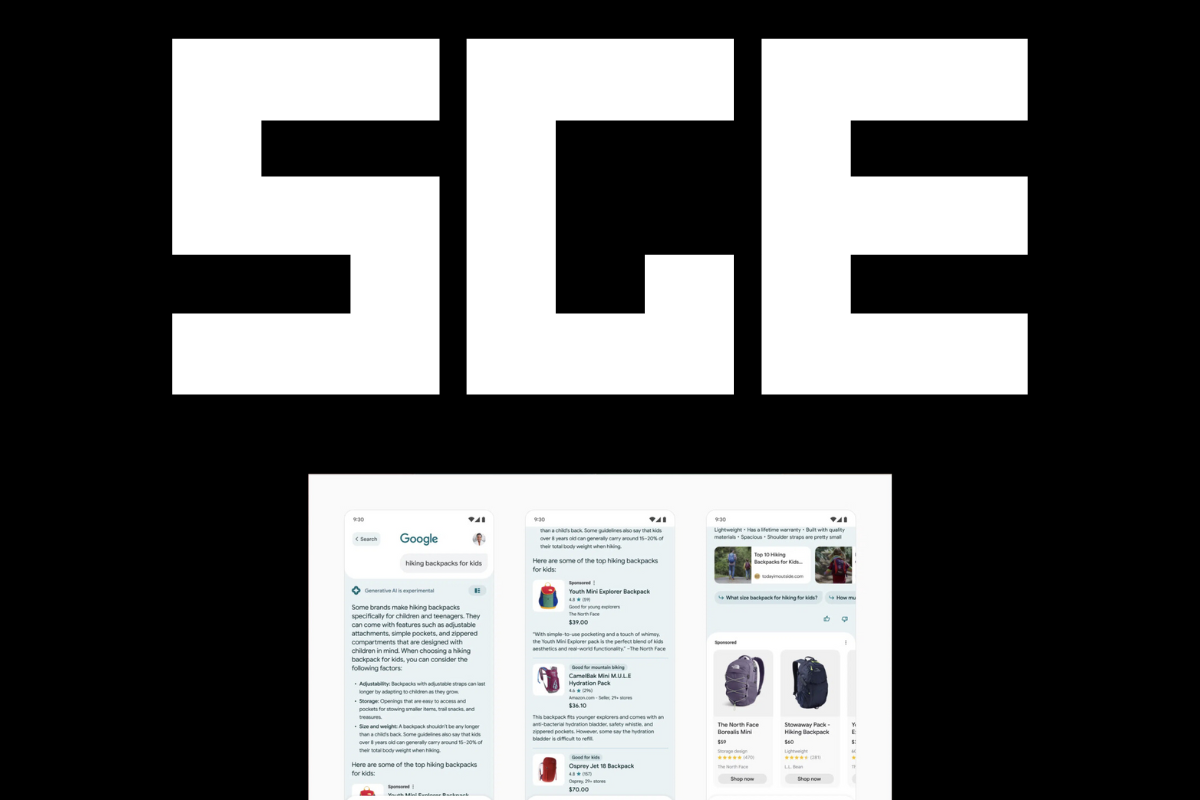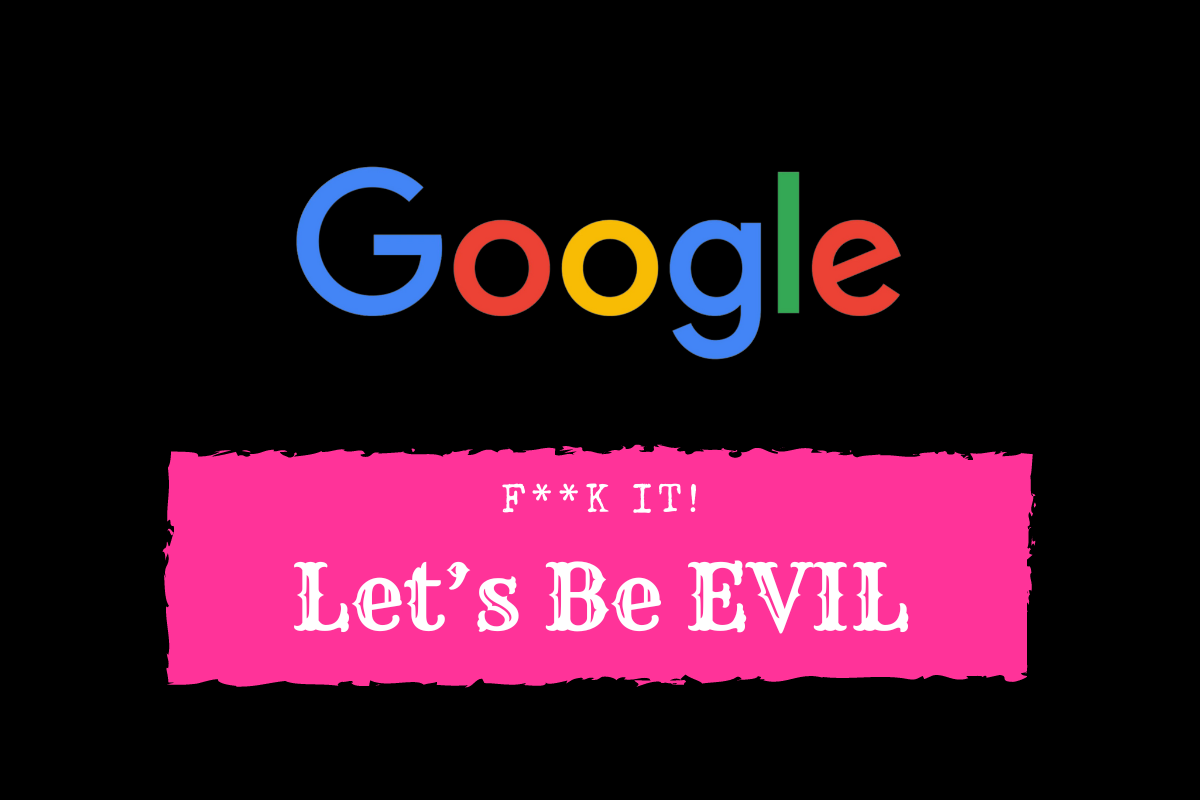After numerous algorithm updates designed to combat spam and a risky big bet on AI, Google’s best product – search – has never been worse
Key Takeaways: Is Google Search Broken?
- Google search is in a dire state, with more ads, low-quality user-generated content, and the concerning rollout of SGE (Search Generative Experience).
- The SERPs are inundated with spam, and even Google’s own AI model is displaying spam results in its SGE answers.
- AI, in its current form, is fundamentally flawed as an information generation tool due to its unreliability and tendency to make things up.
- Google’s focus on AI and SGE raises concerns about the company’s ability to police and maintain the quality of search results.
- SGE is designed to keep users within Google’s ecosystem, even for queries with commercial intent, which critics argue is a monopolistic practice.
Google search is in a bad way. The SERPs have never looked worse, there’s more ads than ever, UGC sites like Quora and Reddit are everywhere, and then there’s the prospect of Google’s SGE experience which is now starting to rollout globally.
As someone that has used Google daily for 20+ years, watching this unfold has been like seeing a car crash in slow motion.
I don’t want to read user-generated content for every query I send Google. If I want to use Reddit, I’ll damn well use Reddit – I have an app on my phone. And then there’s the level of spam being spewed by Google’s very own AI model.
What the hell is going on? It’s a long story, so strap in and let’s see what’s really going on with Google search right now…
Spam In Google Search – It’s Getting Worse
Google has been involved in an ongoing war against spam in its search results for decades. But never before has Google been involved in the dissemination of spam itself.
After near-constant algorithm updates through 2023/24, you’d think the SERPs would be clean. But the game of whack-a-mole, where Google removes something from the SERP and 1000 other similar things pop up, is far from over.
But the twist here is that, now that Google is “all in” on SGE, it too is guilty of doing exactly what it hates the most: giving its users useless, spam information.
You honestly could not make this stuff up: Google says the SERPs are being inundated with spam from chancers using AI to make a fast buck, and then, after one of the largest spam updates in history has completed rolling out, Google itself is displaying spam results in its SGE answers.
Another Epic fail launch of Google AI features.
— Ori Zilbershtein (@OriZilbershtein) March 22, 2024
Not pulling pure hacked URLs to the main SGE is like day 1 feature. https://t.co/ocnqMGEKzb
It would appear that someone is asleep at the wheel. I mean, given everything that has happened in the last six months – thousands of sites deindexed, businesses across the board crippled, and multimillion dollar deals with Reddit – you’d think that Google, at least for the sake of its reputation as the leading search engine, would be out in front of this unfolding disaster.
But no, Google is doing the exact opposite: it’s doubling down on AI, stealing content from publishers and passing it off as its own (SGE), and as long as its share price is going up (which it is at the moment), none of this will change.
The Big Problem With AI
AI in its current, public-facing form – Large Language Models – is great. As a tool for performing tasks and speeding up processes, it is brilliant, a true “game-changer”, as ChatGPT would say.
Used in this context, as a workflow tool, AI is at its best. But one of its major issues is that, as an information generation tool, it is fundamentally flawed because it is NOT reliable – it makes things up, hallucinates, and generally gets things wrong all the damn time.
Google is now ranking Reddit #3 for "best vpns".
— Mike Futia (@mikefutia) March 27, 2024
Which, to no one's surprise — has been completely (and impressively) overrun by cloaked affiliate link spam that Google can't detect.
Or doesn't care to.https://t.co/Ezr21BCNbT pic.twitter.com/WLu3MbDsiY
And this goes for all of them: ChatGPT, Claude, Gemini. Betting the house on AI, that it is better than the traditional way Google does search isn’t just risky, it almost feels dangerous at this stage in AI’s evolution.
Amit Singhal, who was Head of Search at Google until 2016, has always emphasized that Google will not use artificial intelligence for ranking search results. The reason he gave was that AI algorithms work like a black box and that it is infeasible to improve them incrementally.
Then in 2016, John Giannandrea, an AI expert, took over. Since then, Google has increasingly relied on AI algorithms, which seem to work well enough for main-stream search queries. For highly specific search queries made by power users, however, these algorithms often fail to deliver useful results. My guess is that it is technically very difficult to adapt these new AI algorithms so that they also work well for that type of search queries.
While the old guard in Google’s leadership had a genuine interest in developing a technically superior product, the current leaders are primarily concerned with making money. A well-functioning ranking algorithm is only one small part of the whole. As long as the search engine works well enough for the (money-making) main-stream searches, no one in Google’s leadership perceives a problem.
Naturally, this would be a good time for a competitor to capture market share. Problem is, the infrastructure behind a search engine like Google is gigantic. A competitor would first have to cover all of the basic features that Google users are used to before they would be able to compete on better ranking algorithms.
Hacker News
AI responses on the level that Google intends on doing them are impossible to pin down too, its responses are just too random. How do you police this in the same way Google has its traditional approach to search? Is it even possible. And if it is possible to “police it”, doesn’t that kind of detract from the label of it actually being an AI?
The spam update is done rolling out!
— Gael Breton (@GaelBreton) March 21, 2024
So naturally, this newspaper hosting incredibly biased parasite review pages (sales pages, really) is up 23% since the update started 🤷♂️. pic.twitter.com/EGzt3SwljM
We’ve had spam updates to remove AI generated content from the SERPs, and now – in mid-2024 – the SERPs in Google have never looked worse, felt more out of touch with what you’re actually searching for. But parasite SEO sites are still present and ranking, while plenty of legit smaller publishers have been wiped off the face of Google.
SGE Is Gonna Drink Everybody’s Milkshake

SGE will soon begin appearing in more and more searches and, as many sources have noted, much of it is designed to keep people in Google’s ecosystem. And not just for the answer to certain queries, for queries with commercial intent as well.
From ecommerce queries going straight to Google Shopping, to travel tips and recommendations going to Google’s new travel service. Google appears to believe that, since it has crawled the entire web, it has the right to do whatever it likes with the content it discovers.
It all kind of smacks of what critics of Google have been saying for years: it is a monopoly and it needs to be taken apart, it has too much power, and there needs to be checks and balances placed on it before it fundamentally ruins the internet for everyone but itself.
Publishers are complaining that Google, because of its dominance in internet search, has them “between a rock and a hard place” over the use of their copyrighted output to power its artificial intelligence models.
This situation potentially gives Google an enormous advantage over its rivals, they claim, as businesses fear that blocking Google’s AI search “crawlers” would mean that they lose out on valuable traffic.
While most publishers, such as media organisations, have blocked OpenAI’s web crawler, a bot that sucks in their content to feed ChatGPT with information, they fear that barring Google’s equivalent, which supplies its Bard chatbot, would disadvantage them in the long term when it comes to making their information findable and accessible on traditional Google.
The Times
We had the MEDIC update to ensure all medical queries were answered by actual medical professionals, not chiropractors recommending the keto diet for every ailment known to humanity. But with SGE, all bets are off – no one knows how this is going to play out.
But the SERPs are currently a complete mess. Anyone that’s been paying attention knows this. Even my father, the least tech-savvy person I know, mentioned that he stopped using Google because, and I quote: “it doesn’t show me what I’m looking for anymore”.
I’ve switched my web browser to Brave which I now use on all my devices and my default search engines are Bing and DuckDuckGo. I never thought I’d see the day where I didn’t do the vast majority of my research / internet searches using Google.
I’m actually kind of upset about all this too. Google has been a constant for me, and I imagine tens of millions of other people, so to see it transform into something that is currently unrecognisable is a pretty tough pill to swallow.
I’d love to hear your thoughts on this, let me know what you think in the comments section below.



